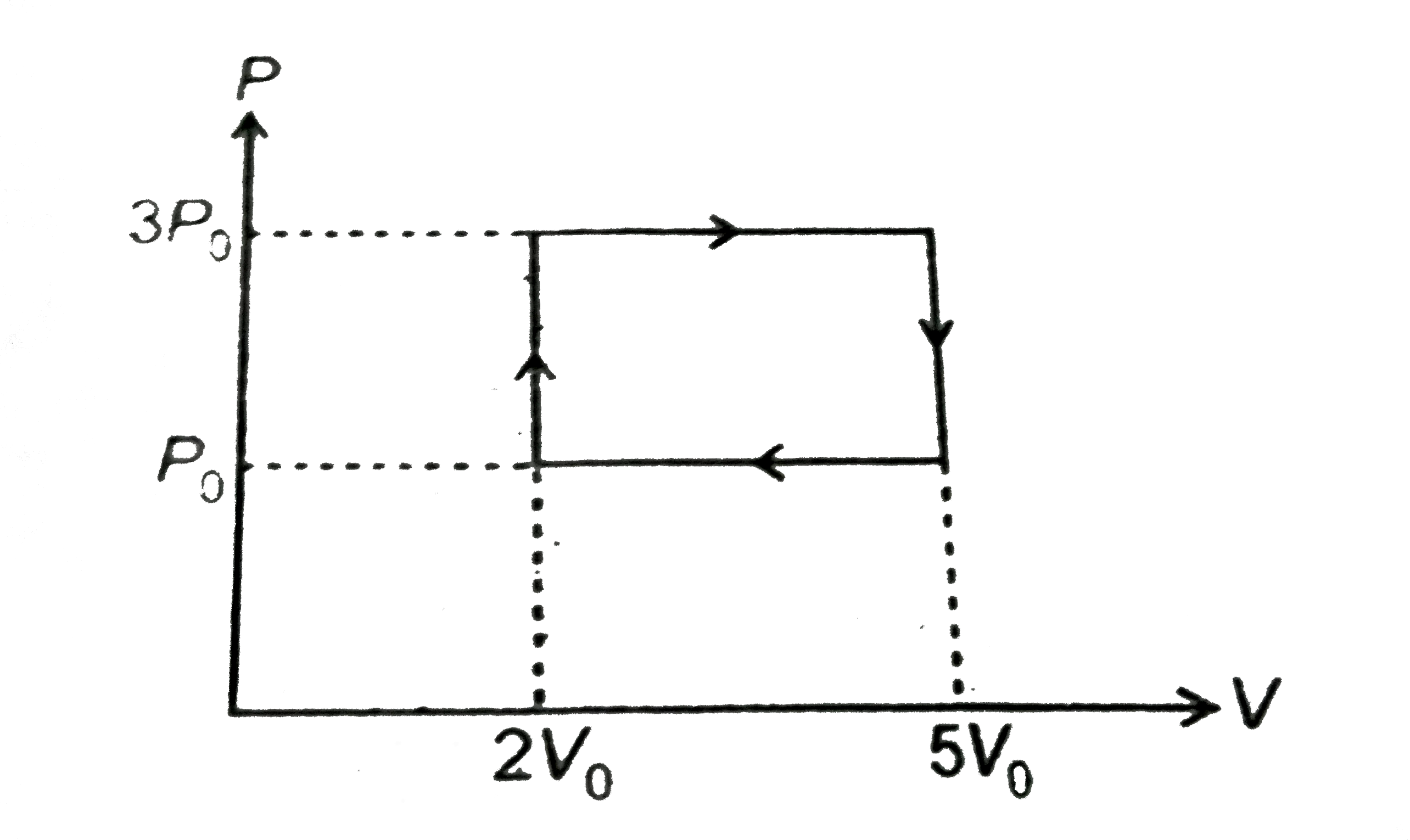Assertion : In a cyclic process ΔU=0.
Reason : Cyclic process represents equilibrium state.
To solve the question, we need to analyze the assertion and the reason given:
Assertion: In a cyclic process, ΔU = 0.
Reason: A cyclic process represents an equilibrium state.
1. Understanding Cyclic Processes:
- A cyclic process is one where the system returns to its initial state after undergoing a series of changes. This means that the initial and final states of the system are the same.
2. State Functions vs. Path Functions:
- In thermodynamics, state functions depend only on the state of the system (initial and final conditions), while path functions depend on the specific path taken to reach from the initial to the final state.
- Internal energy (U) is a state function, meaning its value is determined solely by the state of the system, not by how it got there.
3. Change in Internal Energy (ΔU):
- For a cyclic process, since the initial and final states are identical, the change in internal energy (ΔU) is given by:
ΔU=Ufinal−Uinitial=0
- Therefore, the assertion "In a cyclic process, ΔU = 0" is true.
4. Equilibrium State:
- The reason states that a cyclic process represents an equilibrium state. While it is true that during a cyclic process, the system can be in thermal equilibrium at various points, the statement does not directly explain why ΔU = 0.
- A cyclic process does not necessarily mean the system is in equilibrium throughout; it only returns to the same state at the end.
5. Conclusion:
- Both the assertion and the reason are true; however, the reason does not correctly explain the assertion. The assertion is based on the definition of state functions, while the reason refers to equilibrium, which is not the direct cause of ΔU being zero.
Final Answer:
- The correct answer is that both the assertion and reason are true, but the reason is not the correct explanation of the assertion.
Reason: A cyclic process represents an equilibrium state.
- A cyclic process is one where the system returns to its initial state after undergoing a series of changes. This means that the initial and final states of the system are the same.
- In thermodynamics, state functions depend only on the state of the system (initial and final conditions), while path functions depend on the specific path taken to reach from the initial to the final state.
- Internal energy (U) is a state function, meaning its value is determined solely by the state of the system, not by how it got there.
- For a cyclic process, since the initial and final states are identical, the change in internal energy (ΔU) is given by:
ΔU=Ufinal−Uinitial=0
- Therefore, the assertion "In a cyclic process, ΔU = 0" is true.
- The reason states that a cyclic process represents an equilibrium state. While it is true that during a cyclic process, the system can be in thermal equilibrium at various points, the statement does not directly explain why ΔU = 0.
- A cyclic process does not necessarily mean the system is in equilibrium throughout; it only returns to the same state at the end.
- Both the assertion and the reason are true; however, the reason does not correctly explain the assertion. The assertion is based on the definition of state functions, while the reason refers to equilibrium, which is not the direct cause of ΔU being zero.
- The correct answer is that both the assertion and reason are true, but the reason is not the correct explanation of the assertion.
Topper's Solved these Questions
- THERMODYNAMICSBOOK - MODERN PUBLICATIONCHAPTER - THERMODYNAMICSEXERCISE - Revision Exercise (Very short answer questions)
36 Videos
- THERMODYNAMICSBOOK - MODERN PUBLICATIONCHAPTER - THERMODYNAMICSEXERCISE - Revision Exercise (Short Answer Questions ) (Fill in the blanks : )
5 Videos
- THERMODYNAMICSBOOK - MODERN PUBLICATIONCHAPTER - THERMODYNAMICSEXERCISE - Revision Exercise (Fill in the blanks Questions)
15 Videos
- STRUCTURE OF ATOMBOOK - MODERN PUBLICATIONCHAPTER - STRUCTURE OF ATOMEXERCISE - Unit Practice Test
13 Videos
Similar Questions
Knowledge Check
In any cyclic process,
A∑W=0B∑Q=0C∑Q+ve>∑WD∑ΔU=0For a cyclic process
AW = 0BΔE=0CΔH≠0DΔE≠0What is true for a cyclic process
AW=0BΔE=0CΔH=0DΔE≠0
Assertion : In a process, if work = 0 then ΔU=q
Reason : q is difference between initial state and final state of a system.
View SolutionEffciency Of Cyclic Process
View SolutionExplain the cyclic process.
View SolutionEfficency OF Cyclic Process.
View SolutionWork done in given cyclic process is

View Solution
